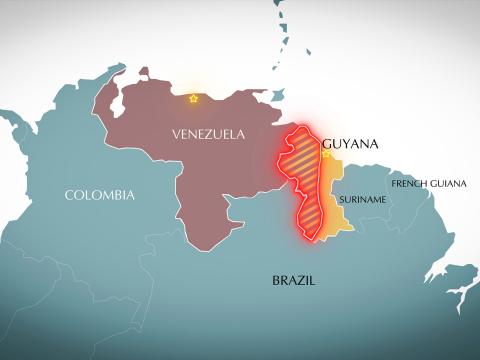Russia Continues Information Warfare
Russia continues its disinformation campaign in order to weaken democratic nations. The country's modus operandi is to intensify genuine grievances and manipulate the public’s lack of knowledge of the legal system. Through this effort, they pass along rumors, conspiracies and distort the truth, which is meant to permeate a target population, according to a recent study from the Center for Strategic and International Studies (CSIS). Russia employs their disinformation efforts through three channels: social media, state linked media outlets and officials in the Russian government, according to CSIS researchers Suzanne Spaulding, Devi Nair and Arthur Nelson, in their report Russia’s Attacks on Democratic Justice Systems.
Through social media, Russia uses trolls and bots to spread its global campaign content online. One example of this is the Internet Research Agency (IRA), which has ties to Vladimir Putin and Russian intelligence. The IRA used fake accounts on social media platforms such as Facebook, Instagram, Reddit, Pinterest and Twitter to spread information warfare, the CSIS researchers said. Much of their content was focused on the issues of Russia and the United States.
The CSIS researchers cite a Clemson University effort that tracked and collected about three million tweets from the IRA on Twitter, which targeted the U.S. judicial system. The messages were intentionally designed to make the reader question whether or not the justice system would actually protect them.
One example is from the IRA-affiliated twitter account called @BleepThePolice, which tweeted “The American (in)justice system does not need a few tweaks, but it needs to be completely overhauled,” the report stated. The account user name and language of the message deliberately make it hard for Twitter users to recognize that the tweet is Russian propaganda, “because the content is in English, and echoes similar complaints made by U.S. citizens,” the CSIS researchers observed.
Russian social media propaganda also works to amplify an existing divide within America. Some Russian disinformation efforts are focused on aggravating racial tensions by posing as Black Lives Matter affiliated groups. These tweets spike after police shootings of African Americans. In those cases, Russia targets a passionate audience that was vulnerable to drawing conclusions not just about the case, but about the entire American justice system, causing them to doubt the integrity of one of the most vital institutions in the democracy, the researchers observed.
Russia also uses state-linked media outlets to discredit the judicial systems in the United States and Europe. Here, they primarily use two media outlets that target an international audience: Russia Today (RT) and Sputnik, which has content in several different languages. The media outlets are funded by the Russian government. RT has a segment called America’s Lawyer, which is aimed at “exposing a corrupt and broken U.S. justice system.” Russia purposely tries to “Americanize” these programs to make them look more legitimate to readers, especially those in the United States. They did this by choosing a U.S. trial attorney, Mike Papantonio, as the host of America’s Lawyer.
Similar to RT, Sputnik has a weekly segment called Loud and Clear, which covers criminal injustice in the United States. The segment brings attention to justice being denied to U.S. citizens, while mixing complaints with inaccurate information. Russia’s goal is to tell their half of a story to convince Americans that their system is broken and corrupt, the CSIS researchers asserted. “Putin’s hope is that Americans will give up on democratic institutions, the way so much of his own population has come to accept the corruption in Russia,” they stated.
The third way that Russia is using deception to deteriorate democracies is through communications by high-level government officials, who repeat similar statements made by Russian news outlets and social media. Their aim is to lessen the appeal of democracy to its own citizens by presenting the U.S. judicial system as biased and unfair. An example of this is a fabricated story about a thirteen-year-old Russian girl in Germany named Lisa. Russia spread false information that she was kidnapped and raped by Arab migrants. Although German police had confirmed that the girl had not been kidnapped or harmed in any way, Russia continued to spread conspiracy theories about how it was a cover-up by the German government, the researchers noted.
Russian diplomat and politician Sergey Lavrov publicly stated: “We wish Germany success in dealing with the enormous problems caused by migrants. I hope these issues do not get swept under the rug, repeating the situation when a Russian girl’s disappearance in Germany was hushed up for a long time.” His statements and similar comments made by other Russian officials are aimed at making democratic governments look biased and unfair and try to minimize citizens’ faith in their democratic government, the CSIS researchers stressed.
When Russia uses propaganda to spread lies and half-truths, it can have deep effects on the peoples’ trust in their government. When they wear down the public’s confidence in the rule of law, it undermines the institutions of justice because in order for a democratic justice system to work, the people must perceive it to be fair and impartial. It is important for policymakers to realize how damaging Russia’s disinformation campaigns can be, the CSIS researchers warned.




Comments